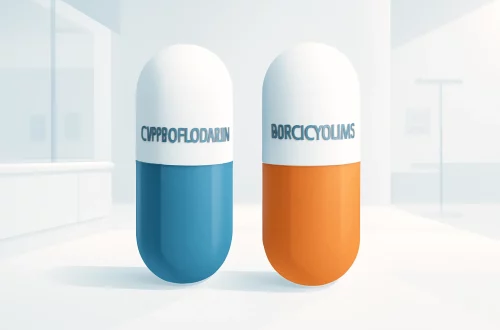
Understanding Bordetella Vaccine Side Effects in Puppies
Vaccination is a pivotal aspect of responsible pet ownership, particularly for puppies. As these young and vulnerable animals begin their journey into the world, vaccinations play a crucial role in safeguarding their health against various infectious diseases. Among the various vaccines available, the Bordetella vaccine stands out due to its effectiveness in preventing kennel cough, a highly contagious respiratory illness. While vaccinations are designed to protect our pets, they can also come with potential side effects, which can cause concern for pet owners.
Understanding these side effects is essential for caregivers, as it allows them to differentiate between normal post-vaccination reactions and potential health issues requiring attention. The Bordetella vaccine, which can be administered via an injection or nasal spray, is generally considered safe, but like any medical intervention, it can have varying effects on individual puppies.
As we explore the implications of the Bordetella vaccine, it’s important to approach the topic with a balanced perspective, recognizing both the benefits of vaccination and the potential risks involved. This understanding is not only vital for maintaining the health of our furry companions but also for ensuring that pet owners make informed decisions about their care.
Common Side Effects of the Bordetella Vaccine
When a puppy receives the Bordetella vaccine, it is normal for them to experience some mild side effects as their body builds immunity. Understanding these common reactions can help pet owners prepare for what to expect post-vaccination.
Among the most frequently observed side effects are mild lethargy and a decrease in appetite. These symptoms can occur as the puppy’s immune system responds to the vaccine. In most cases, these reactions are short-lived and resolve within a day or two. Another common side effect is mild fever, which can be a natural response to the vaccine as the body gears up to fight off the infection it is being protected against.
Some puppies may also develop a localized reaction at the injection site, which might include swelling or tenderness. This can be particularly common with injectable vaccines. It’s important to monitor this area for any significant changes, such as increased swelling or discharge, as these could indicate a more serious reaction.
In rare cases, puppies may experience more severe side effects, such as allergic reactions. Signs of an allergic reaction can include difficulty breathing, swelling of the face or limbs, and hives. If any of these symptoms occur, it is crucial to seek veterinary attention immediately.
Overall, while side effects can occur, most puppies tolerate the Bordetella vaccine well, and the benefits of protecting them against kennel cough far outweigh the risks associated with these mild reactions.
Monitoring Your Puppy After Vaccination
After your puppy receives the Bordetella vaccine, it is essential to monitor their behavior and overall health for a few days. Being vigilant during this time can help you catch any potential side effects early and ensure that your puppy is recovering well from the vaccination.
First and foremost, keep an eye on your puppy’s energy levels. It’s normal for them to be a bit more tired than usual, but if the lethargy persists for more than 48 hours or if your puppy seems excessively weak, you should consult your veterinarian. Additionally, watch for changes in their appetite. A transient decrease in food intake can be expected, but a complete refusal to eat for more than a day may warrant a visit to the vet.
Another important aspect to monitor is your puppy’s behavior concerning their usual activities. If they show signs of discomfort, such as whining or reluctance to engage in play, it might indicate that they are experiencing more than just mild side effects.
Make sure to check the vaccination site regularly. If you notice any swelling that increases over time or if there are signs of infection, such as pus or excessive warmth, it’s important to seek veterinary advice.
Lastly, always keep your veterinarian informed about your puppy’s vaccination status and any reactions they may experience. This open line of communication is crucial for your puppy’s health and can help ensure they receive the best care possible.
Preventive Measures and Best Practices
To minimize the risk of side effects associated with the Bordetella vaccine, it is essential to follow some best practices before and after vaccination. By taking proactive steps, you can help ensure your puppy’s vaccination experience is as smooth and safe as possible.
First, always ensure your puppy is in good health before bringing them in for vaccination. Schedule an appointment with your veterinarian to discuss any concerns you may have regarding your puppy’s health. A thorough examination can help identify any underlying issues that could exacerbate the risk of side effects.
Timing is also crucial. If your puppy is experiencing any illness, such as a cold or digestive upset, it may be best to postpone the vaccination until they are fully recovered. This not only helps your puppy tolerate the vaccine better but also ensures that their immune system is functioning optimally.
After vaccination, provide a calm and comfortable environment for your puppy to recover. Limit their exposure to stressful situations and other animals, especially in the first few days following the vaccination. This can help reduce anxiety and potential stress reactions that may arise during recovery.
Hydration is also essential. Make sure your puppy has access to fresh water at all times, as proper hydration can aid in their recovery. If you notice that your puppy is not drinking as usual, encourage them by offering ice cubes or adding a little water to their food.
Lastly, keep a record of your puppy’s vaccination history and any side effects they may experience. This documentation will be beneficial for future veterinary visits and can help track any patterns that may arise with subsequent vaccinations.
Consulting with Your Veterinarian
The most crucial step in managing your puppy’s vaccination and any associated side effects is maintaining open communication with your veterinarian. Your veterinarian is your best resource for understanding your puppy’s health needs and the implications of vaccinations.
Before vaccinating, don’t hesitate to ask your veterinarian about the Bordetella vaccine, its benefits, and potential side effects. They can provide tailored advice based on your puppy’s health history and lifestyle. For instance, if your puppy is frequently around other dogs, the Bordetella vaccine may be highly recommended.
In the event that your puppy does experience side effects, your veterinarian can offer guidance on how to handle them. They may recommend at-home care for mild symptoms or suggest further evaluation if severe reactions occur.
Additionally, if you have concerns about the timing of vaccinations or potential interactions with other medications or vaccines, your veterinarian can help you create a vaccination schedule that best suits your puppy’s needs.
Regular check-ups are also essential for monitoring your puppy’s overall health and ensuring that their vaccinations remain up-to-date. These visits provide an opportunity for you to discuss any lingering concerns or new observations regarding your puppy’s behavior and health.
It’s important to remember that while this article provides general information on Bordetella vaccine side effects, it is not a substitute for professional medical advice. Always consult your veterinarian for specific concerns regarding your puppy’s health and vaccination status.
Taking the time to educate yourself about the Bordetella vaccine and its potential side effects can empower you as a pet owner, allowing you to make informed decisions for your puppy’s well-being.




